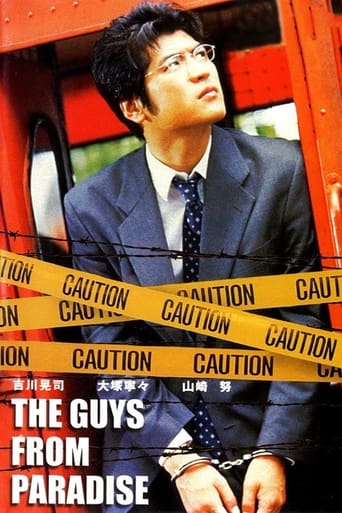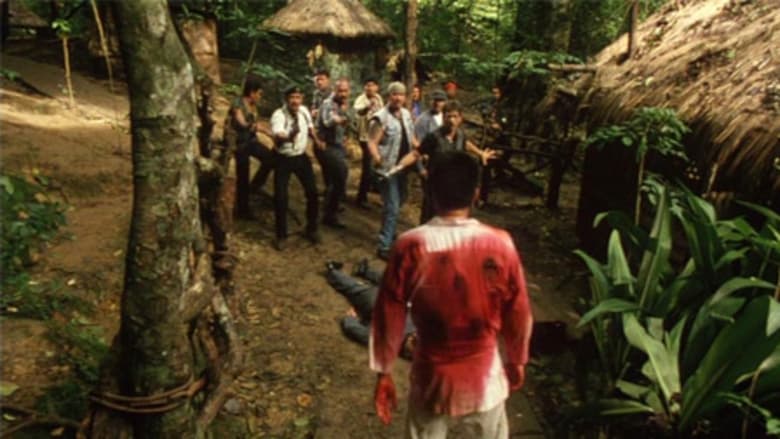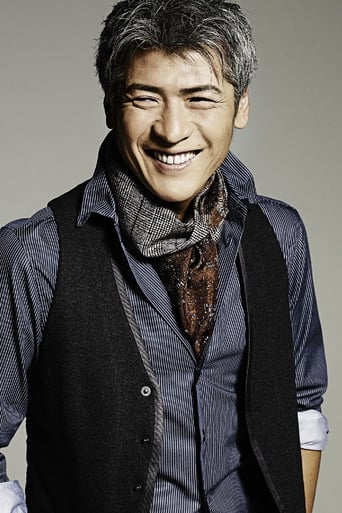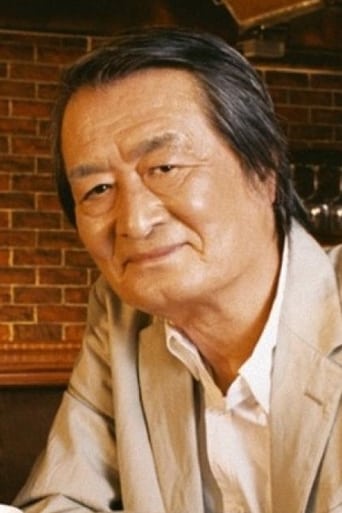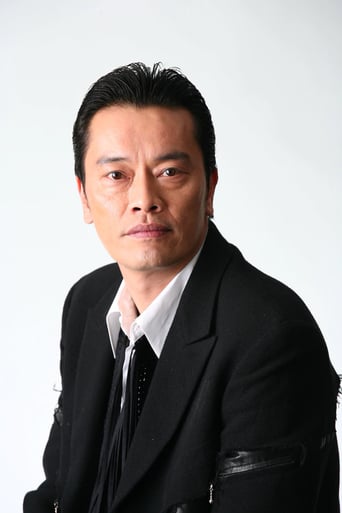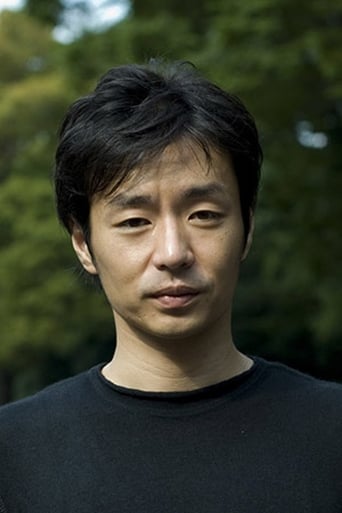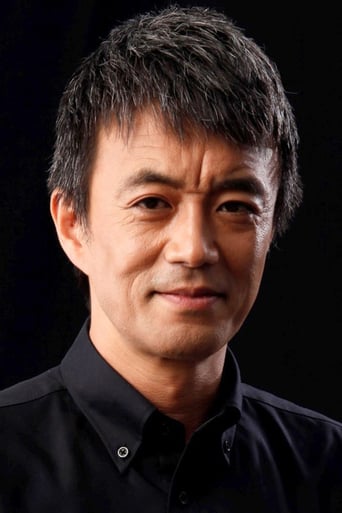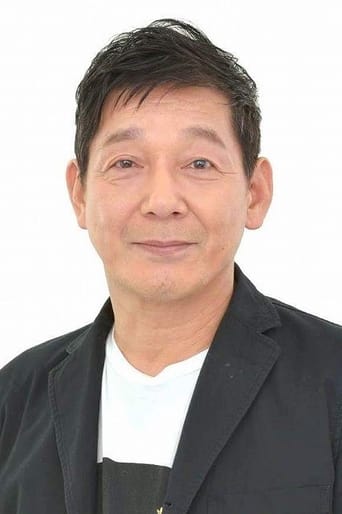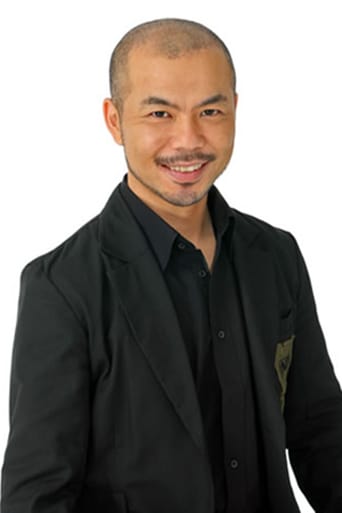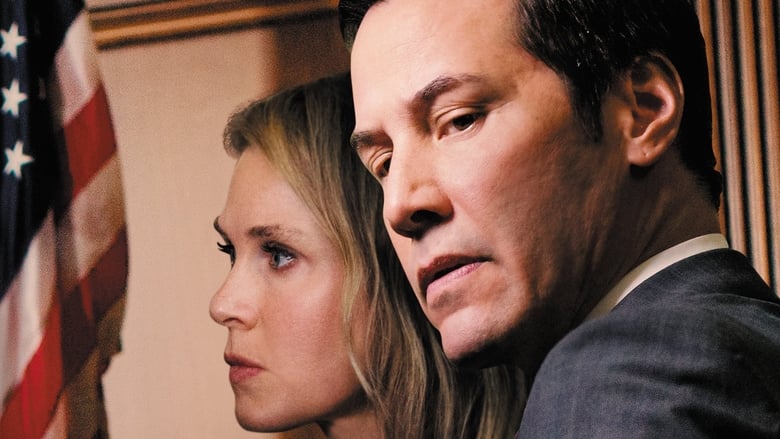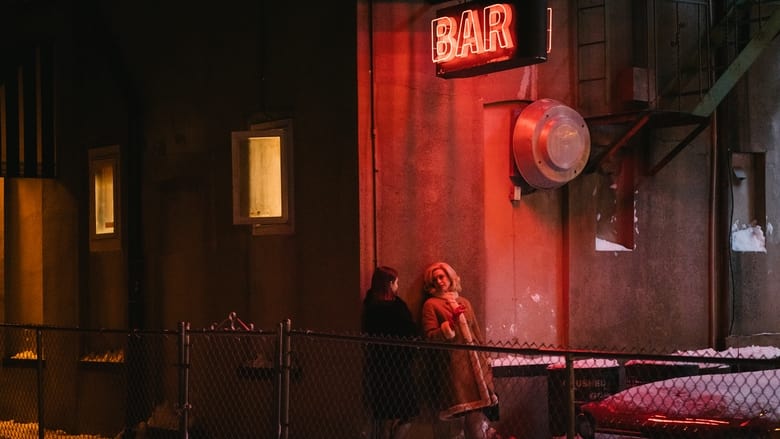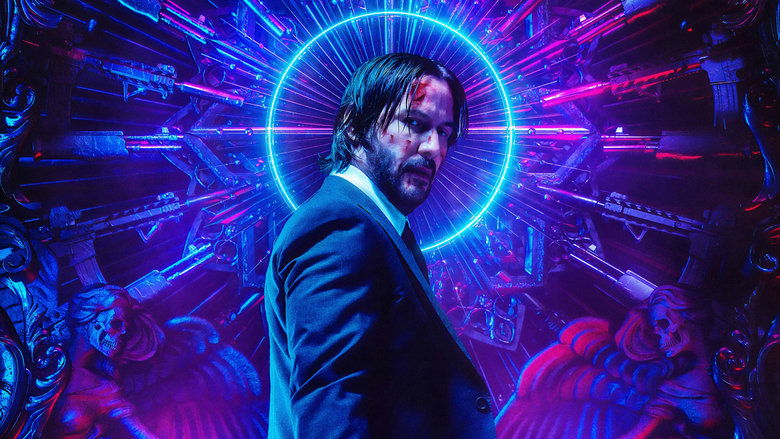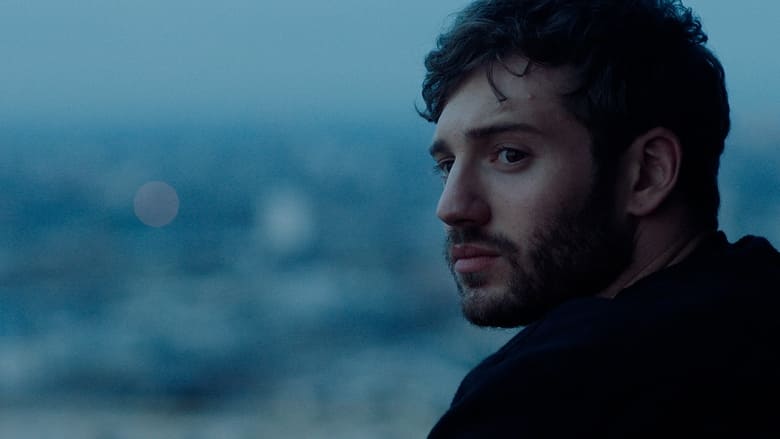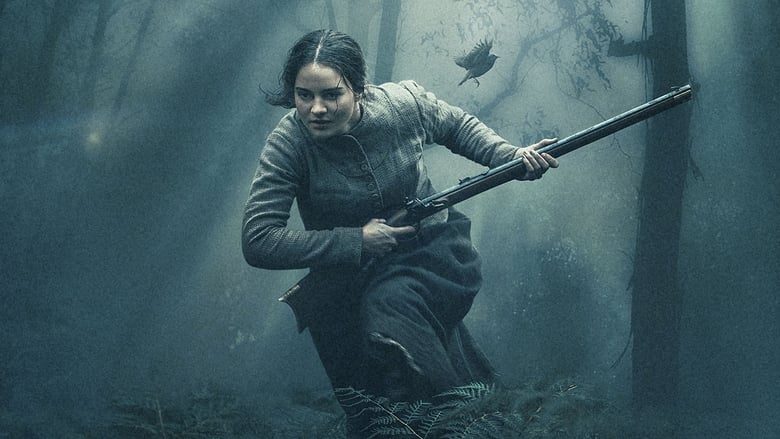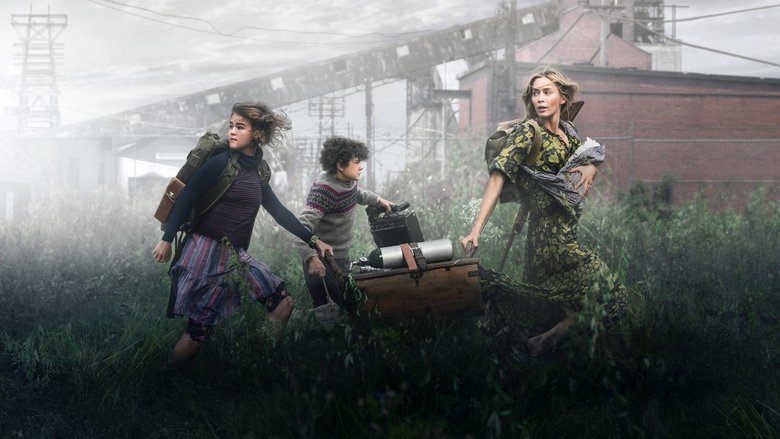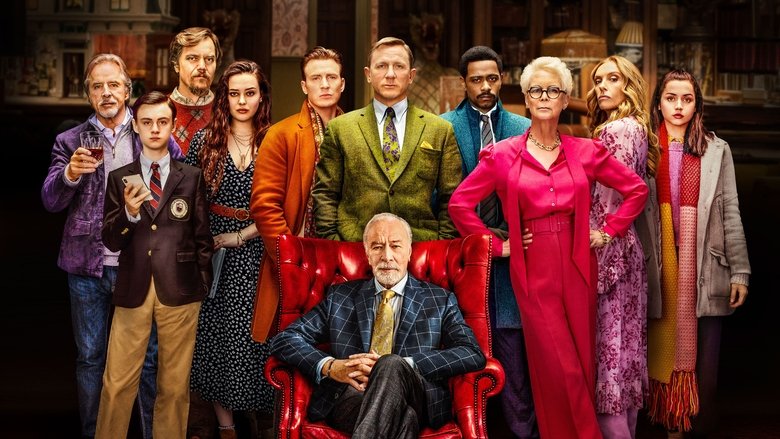Set in the Philippines, Takashi Miike’s “The Guys from Paradise” weaves together the stories of several real-life criminal cases. Young up-and-coming salary man Kohei Hayakawa is sent to Paradise prison on false drug charges, and assumes his lawyers will clear up this misunderstanding fairly quickly. However, he soon comes to the realization that his innocence means less than how much bribe money he’s able to come up with for his release. It becomes apparent that Kohei is going to have to get to know his fellow inmates a little better, as he’s obviously in this situation for the long haul; but meeting a female inmate from a nearby jail certainly makes his transition to the criminal life a little easier to take.


Reviews
That director Takashi Miike is known in the west mostly for his ultraviolent shockfests and cartoonish yakuza flicks says more about western audiences (or distributors as the case may be) than the director. For every ICHI THE KILLER in his ouevre there is a BIRD PEOPLE IN CHINA and GUYS OF PARADISE is closer to the latter than the first. Neatly sandwiched between the comic-book absurdity of CITY OF LOST SOULS and the summer-afternoon nostalgia of DEAD OR ALIVE 2: BIRDS, the movie walks the proverbial tightrope between the absurd and the dramatic, mostly leaning towards the latter, with hearty doses of black comedy thrown in for good measure.Following the misadventures of a timid Japanese business man in the Phillipines, arrested and thrown in prison for smuggling heroin where he starts dealing drugs for another inmate in cahoots with the prison warden, the movie stacks a series of tragicomic episodes of the appalling conditions of prison life, weaving together the lives of six Japanese inmates (the titular Guys from Paradise) as they bide their time in the hot, damp purgatory of Manila, dealing drugs, squabbling with each other and dodging the occasional hired assassin. The tone is a bit inconsistent, as though Miike wants to make a poignant dramedy but in the same time can't help himself indulging his crazier side. Between a woman hiding jewelry in her nether parts, a yakuza boss merrily imbibing his bodily fluids, a man getting shot full of holes and still able to walk around for a couple of minutes and say "I love you" in broken English, the movie threatens to turn into FUDOH any moment. Miike mostly succeeds in keeping a lid on all-out madness, while still managing to squeeze a handful of beautiful moments out of his material. Exchanging the frenetic editing of his yakuza flicks for a sombre approach and a slow-burn pace, Miike uses quirky editing tricks mixed with long static shots to mirror the two-pronged seriocomic nature of the movie, which is filmed in drab, washed-out tones but makes great use of the vivid Phillipinese locations. All in all, this is not quite the Miike casual viewers might expect, but longtime fans will appreciate this other, more contemplative side.
This is one of my favourite Miike movies. Much as I love the OTT manga style, and the deadly serious yakuza movies, I've also been well impressed by the "normal" movies he's made. Critics who claim that he's manically weird and/or depraved are probably missing the comedy aspects of his crazier work. You could always wait ten years for Tintin Quarantino to do a washed out compilation hack job if you find Miike's sensibilities so abhorrent. For those capable of reading subtitles and chewing gum simultaneously, there's no need to wait that long.Guys From Paradise is far from violent, almost obscenely decent, and wholly lacking in explosions and gratuitous gore. There's a couple of comedy masturbation scenes to frighten your granny, but apart from that it's the script and the performances which drive the movie and hold the interest.It's a fine ensemble piece about differing perceptions of corruption and criminality, and nobody puts a foot wrong in nearly two hours. Some of the photography is nonchalantly extraordinary, and I too get the feeling that Miike respects the people and culture when he shoots outside Japan. One particular shot of Manilla at dusk from a decrepit shanty scrapyard is pure poetry. Great cinematography that never steals the thunder from the script.As mentioned in other reviews, this makes a fine companion piece to Blues Harp and Bird People in China, and it makes a mockery of the claims that he's only good with shock tactics. If Miike is brutal, then this is a brutally uplifting, life affirming gem of a movie.
Miike does not wish to be pigeon-holed. Along with such disturbing films as 'Ichi the Killer' or action films like 'City of Lost Souls', he produces touching stories like 'The Bird People of China' or 'Guys From Paradise'. The first hour and a bit takes place in a prison, where businessman Kohei Hayakawa (Koji Kikkawa, who was also in Miike's City of Lost Souls) gets thrown into prison for possession of heroin and quickly finds that without money and bribes there's no hope of escaping. Whether he's guilty is not the question, rather how much money he's willing to give to the corrupt warden, and judge, and lawyer, etc.. He gets thrown into a jail cell with three other Japanese men and when they find out he's in for heroin possession he is instantly their best friend. The base of the story is betrayal, and how when things are going right it seems like you can trust everybody, but as soon as you wind up in prison all of those connections forget about you, or do something to betray your trust. It's this common understanding that unites the Japanese men in prison, and they hold their end through some very thick trouble. I wouldn't say it's Miike's best work, but it is definitely a solid film, and proves he is capable of much more than shock cinema. Rating: 25/40
Falsely charged with heroin possession and unceremoniously traded in by his fiancée, slick yuppie Kohei Hayakawa (Koji Kikkawa) finds himself a stranger in Paradise of a very wrong kind. Stranger yet, in the fullness of time this Phillipines prison camp becomes his dwelling of choice. But the film belongs to Tsutomu Yamazaki, best known thanks to Juzo Itami as the swaggering trucker Goro in Tampopo and the master tax cheat Gondo in Marusa no onna, who stays in character as the would-be crook Katsuaki Yoshida come into his own in the jailhouse, to trade his insider survival skills for Hayakawa's business acumen. The political subtext contrasts the élite position of the stiffly crooked Japanese with the vibrant corruption of neighboring Asian cultures. While lacking the moral rigor of Audition and the manic intensity of Ichi the Killer, this film will reward the viewers with what may be the most life-affirming message delivered by Takashi Miike to date.
